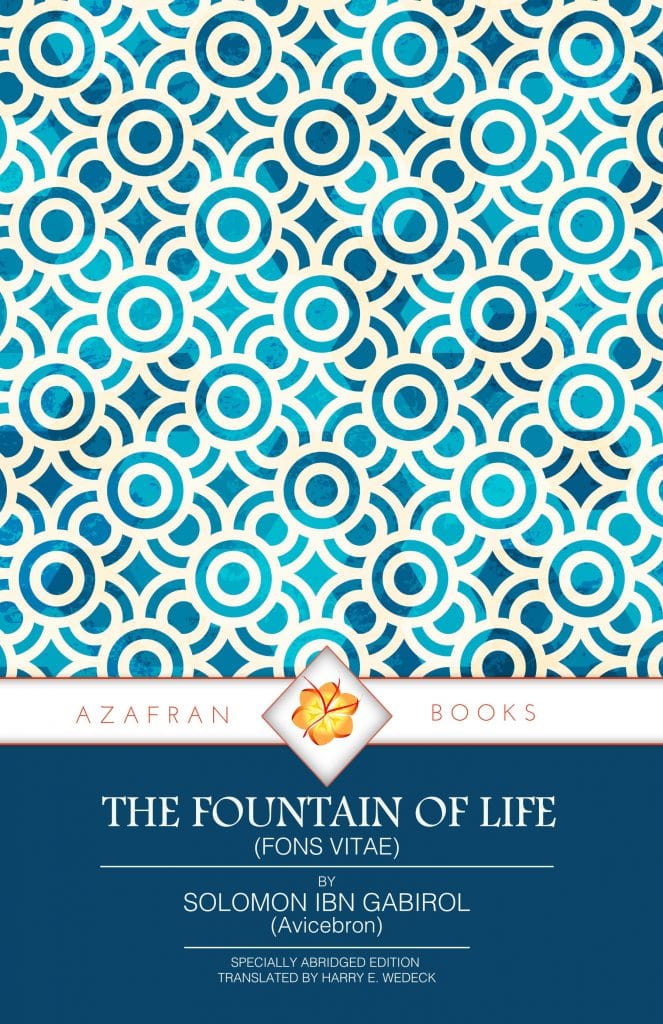Solomon ibn Gabirol is now best known for his work Fons Vitæ (‘Fountain of Life’) and for his philosophical doctrine that all things, including soul and intellect, are composed of matter and form, and for his emphasis on Divine Will. Fons Vitæ is a Neo-Platonic philosophical dialogue between master and disciple on the nature of Creation and how understanding what we are (our nature) can help us know how to live (our purpose). The work was originally composed in Arabic, of which no copies are extant. It has come down to us throughout the ages due to its translation into Latin (in 1150) by the Toledo School of Translators.
Solomon ibn Gabirol (1021-1070) was an 11th century Andalusian poet who was born in Malaga and died in Valencia. He is credited as being a Jewish philosopher with, it is said, a ‘Neo-Platonic’ bent. He published over a hundred poems, as well as works on philosophy, ethics, and satire. In the 19th century it was discovered that medieval translators had Latinized Gabirol’s name to Avicebron and had translated his work on Jewish Neo-Platonic philosophy into a Latin form.
DEMONSTRATION OF SIMPLE SUBSTANCES
Part I
Pupil: What is the problem that we are now to discuss in this book?
Master: Since it is our intention to find the matter and the form in simple substances, and since you question the existence of simple substances, we must first consider—and that is the purpose of this book—the proof of the existence of simple substances. We shall seek assured certainty in this regard to the point of establishing their existence by necessary proofs. Next we shall proceed to an examination of the science of matter and form in simple substances.
READ MORELet us begin then by producing the proofs that establish the existence of a substance intermediary between the First Author, sublime and holy, and the substance that supports the nine categories. In this connection we shall postulate the following fundamental principle: If the origin of beings is the First Author, who is not caused, and the end of beings is the final effect, that itself has no effect, then the beginning of things is essentially and actually different from their end. For if the beginning of things is not distinct from their end, then the beginning is the end, and the end is the beginning.
Pupil: What is the nature of the distinction between the First Author, sublime and holy, and the final effect?
Master: By the distinction between them, we understand the removal of resemblance and similitude; and with the removal of resemblance and similitude, union or harmony is removed, for there is harmony only through resemblance.
Pupil: How can it be asserted with truth that between the First Author and the substance that supports the nine categories there exist intermediary substances that are nearer to the First Author than this substance, while all things are distinct from him and none of them is more worthy of being near him than another?
COLLAPSE


